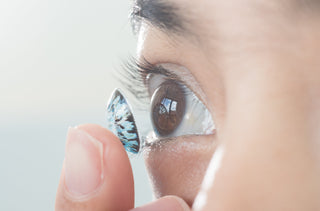Summer is fast approaching and we are all hungry for doses of vitamin D. We suspect warm-weather activities like gardening, bike rides and long walks will soon occupy your time.
You know the importance of using sunscreen to protect your skin from the sun’s UV rays, but don’t forget two essential organs, your eyes! Exposure to the sun without protecting your eyes can cause Photokeratitis, a temporary painful condition which causes sun blindness due to sunburned eyes. The area around the eyes is usually left out when you apply sunscreen, but this fragile skin is easily damaged and can lead to premature wrinkling and skin cancer.
There are other more serious conditions caused by the sun that can lead to permanent damage.
- Premature ageing of the retina and increased risk of macular degeneration
- Cataracts, which is the yellowing of the eye’s lens
- Pterygium or pinguecula which is a growth on the clear covering of the white part of the eye
A good quality pair of sunglasses is so much more than a fashion accessory, they are designed to protect your eyes from sun damage. You want sunglasses that offer 100% UV protection or have a UV 400nm sticker. These will block the sun’s rays much like sunscreen protects your skin.
Bigger is better, so consider large oversized sunglasses that provide maximum coverage and ideally wrap around the face or have wide temples to best protect the vulnerable skin around your eyes.
Another important element to look for when shopping for sunglasses is polarized lenses.
Glare off water and wet surfaces, pavement and shiny objects like cars and glass cause visual discomfort and reduced visibility. Polarized lenses filter the light which causes glare and are an excellent solution for most sports and driving.
Wear a hat with your sunglasses, the wider the brim the better, to provide even more shade.
Do you need prescription glasses to be able to enjoy activities? There are great solutions for you!
- Choose your favourite shades and ask our professionals to have your prescription added to the lenses.
- If you are in and out of the house, add a photochromic treatment to your new eyewear. These two-in-one lenses are clear indoors and darken when exposed to sunlight.
- Contact lenses give you the freedom to wear non-prescription sunglasses and see perfectly. Yes, contact lenses do protect against UV rays but since they do not cover your entire eye or the sensitive skin around them, you will need to wear sunglasses as well.
Not sure what the right solution is for you? Contact your IRIS professionals! They will help you choose the best option for you for the type of activities you do.





















































